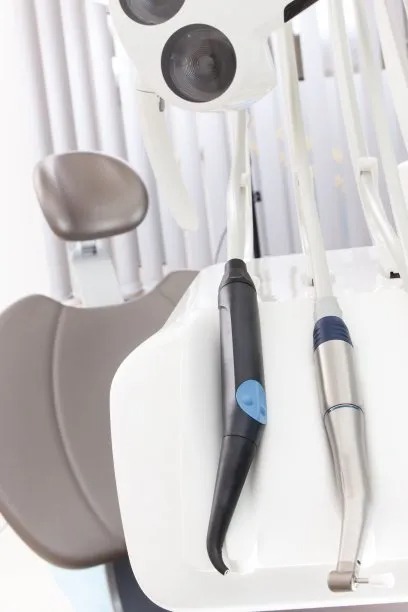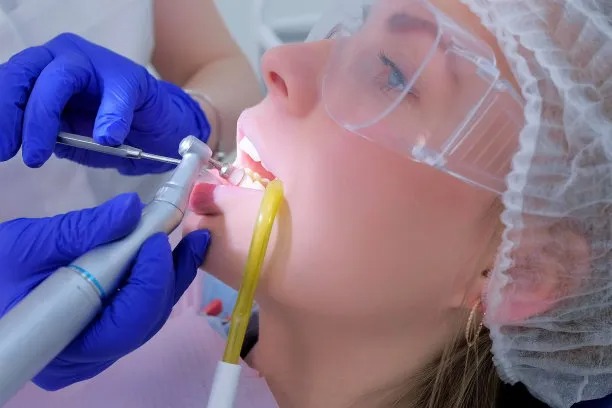Exploring the Advancements and Challenges in Vietnamese Dentistry Today
original:health91192025-02-20 11:54:14
Summary: Vietnamese Dentistry Today is experiencing significant advancements and facing notable challenges. This article explores the key developments and obstacles in the field, shedding light on the
Summary: Vietnamese Dentistry Today is experiencing significant advancements and facing notable challenges. This article explores the key developments and obstacles in the field, shedding light on the current landscape of dental care in Vietnam.
1. Technological Innovations

In recent years, Vietnamese dentistry has witnessed a surge in technological advancements, revolutionizing the way dental procedures are performed. State-of-the-art equipment and digital tools have enhanced precision, efficiency, and patient comfort in treatments. The integration of 3D imaging, laser technology, and CAD/CAM systems has enabled dentists to provide more accurate diagnoses and personalized care.
The adoption of tele-dentistry platforms and virtual consultations has also expanded access to dental services, especially in remote areas. These innovations not only improve the overall patient experience but also contribute to the professional development of dentists in Vietnam.
However, the rapid pace of technological progress presents challenges in terms of affordability and training. Ensuring widespread access to advanced equipment and resources remains a significant issue, requiring collaboration between stakeholders to bridge the digital divide in Vietnamese dentistry.
2. Quality of Education and Training
The quality of education and training for dental professionals is crucial for the advancement of dentistry in Vietnam. Dental schools and training programs play a vital role in shaping the skills and knowledge of future practitioners. Continuous education and professional development opportunities are essential to keep pace with evolving techniques and best practices in the field.
Moreover, fostering a culture of research and innovation within the dental community is necessary to drive progress and excellence in patient care. Collaborations with international institutions and sharing of expertise can enrich the educational landscape and promote interdisciplinary approaches to dental health.
Challenges such as limited resources, outdated curricula, and the need for standardized accreditation procedures pose obstacles to maintaining high educational standards. Addressing these challenges requires investment in educational infrastructure and a commitment to ongoing improvement in dental education in Vietnam.
3. Access to Dental Care
Despite advancements in technology and education, access to quality dental care remains a challenge for many Vietnamese individuals. Disparities in healthcare infrastructure, financial constraints, and geographical barriers often prevent people from receiving timely and comprehensive dental services.
Public health initiatives and community outreach programs play a crucial role in addressing these access issues, particularly for underserved populations. Promoting preventive care, oral hygiene education, and early intervention strategies can help reduce the burden of dental diseases and improve overall oral health outcomes.
Collaboration between government agencies, healthcare providers, and non-profit organizations is essential to develop sustainable solutions that increase access to dental care across different regions of Vietnam. Advocacy efforts and policy reforms can also contribute to creating a more inclusive and equitable dental care system.
4. Regulatory Framework and Professional Standards
The regulatory framework and adherence to professional standards are essential aspects of ensuring high-quality dental services in Vietnam. Regulatory bodies and licensing boards play a critical role in overseeing the practice of dentistry, setting guidelines for ethical conduct, and monitoring compliance with established protocols.
Enforcement of standards, infection control practices, and patient safety measures are paramount to building trust and credibility in the dental profession. Continuous monitoring of practitioners qualifications, competency assessments, and peer reviews are vital components of maintaining professional integrity and accountability.
Despite efforts to uphold regulatory standards, challenges such as unregistered practitioners, counterfeit products, and inadequate enforcement mechanisms pose risks to patient safety and the reputation of the dental profession. Strengthening regulatory enforcement, enhancing public awareness, and promoting ethical practices are key strategies to address these challenges.

Summary:
In conclusion, the advancements in Vietnamese dentistry, driven by technological innovations, improved education and training, enhanced access to care, and strengthened regulatory standards, have transformed the landscape of dental healthcare in the country. While significant progress has been made, challenges persist in ensuring equitable access, maintaining educational excellence, and upholding professional integrity. By addressing these challenges collaboratively and proactively, the dental community in Vietnam can continue to enhance the quality of care and promote oral health for all.
This article is published by HEALTH9119 Medical Health Network https://www.health9199.com arrangement